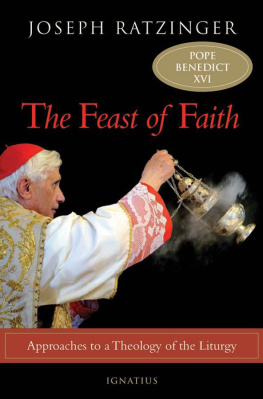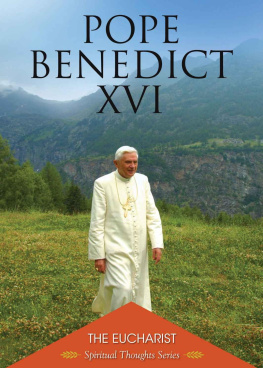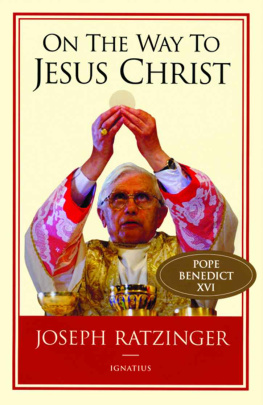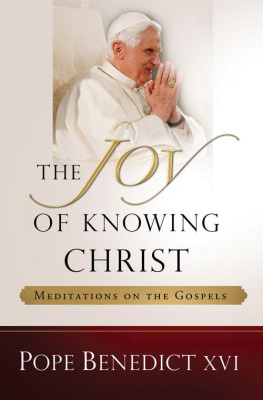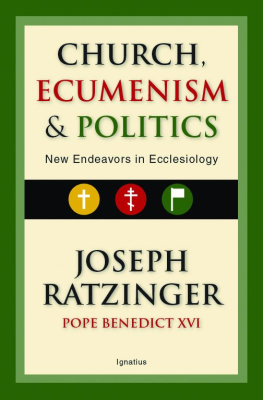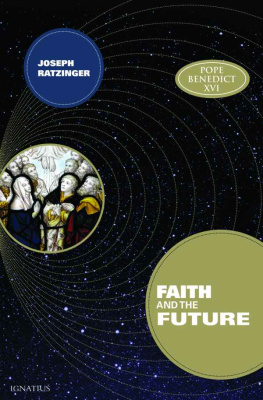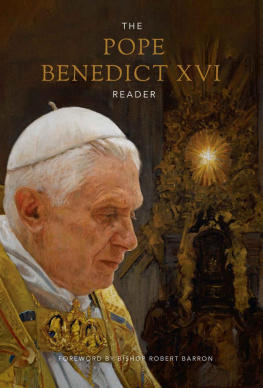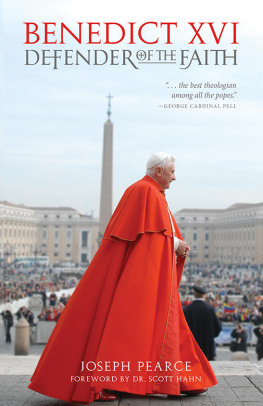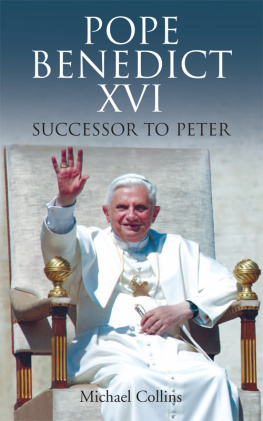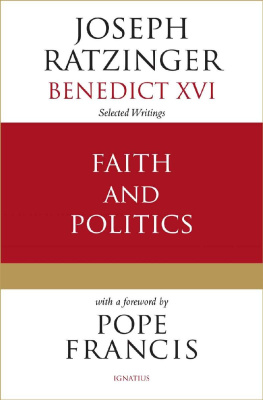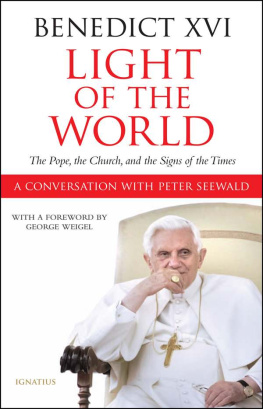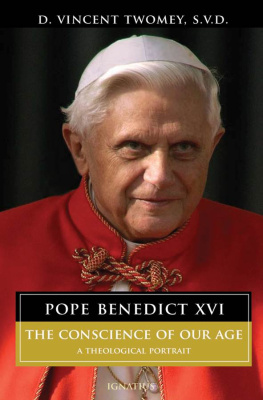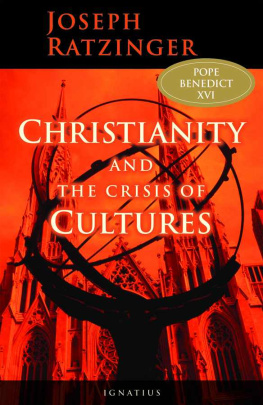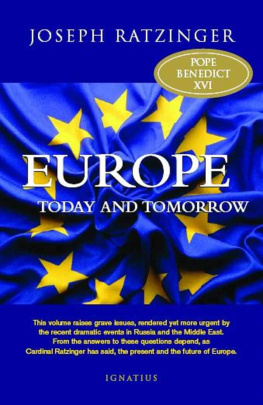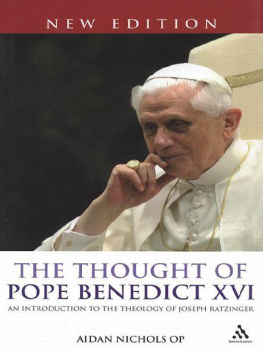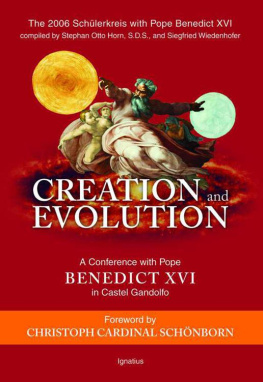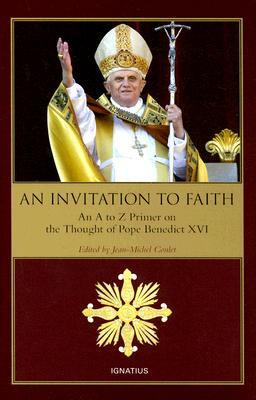Benedict XVI - Without Roots: Europe, Relativism, Christianity, Islam
Here you can read online Benedict XVI - Without Roots: Europe, Relativism, Christianity, Islam full text of the book (entire story) in english for free. Download pdf and epub, get meaning, cover and reviews about this ebook. year: 2007, publisher: Basic Books, genre: Politics. Description of the work, (preface) as well as reviews are available. Best literature library LitArk.com created for fans of good reading and offers a wide selection of genres:
Romance novel
Science fiction
Adventure
Detective
Science
History
Home and family
Prose
Art
Politics
Computer
Non-fiction
Religion
Business
Children
Humor
Choose a favorite category and find really read worthwhile books. Enjoy immersion in the world of imagination, feel the emotions of the characters or learn something new for yourself, make an fascinating discovery.

- Book:Without Roots: Europe, Relativism, Christianity, Islam
- Author:
- Publisher:Basic Books
- Genre:
- Year:2007
- Rating:3 / 5
- Favourites:Add to favourites
- Your mark:
- 60
- 1
- 2
- 3
- 4
- 5
Without Roots: Europe, Relativism, Christianity, Islam: summary, description and annotation
We offer to read an annotation, description, summary or preface (depends on what the author of the book "Without Roots: Europe, Relativism, Christianity, Islam" wrote himself). If you haven't found the necessary information about the book — write in the comments, we will try to find it.
Without Roots: Europe, Relativism, Christianity, Islam — read online for free the complete book (whole text) full work
Below is the text of the book, divided by pages. System saving the place of the last page read, allows you to conveniently read the book "Without Roots: Europe, Relativism, Christianity, Islam" online for free, without having to search again every time where you left off. Put a bookmark, and you can go to the page where you finished reading at any time.
Font size:
Interval:
Bookmark:
A sweeping analysis of the fundamental problem facing Europe, and an equally sweeping outline of the solution.
National Review Online
Ratzingers discussion of the continents religious and secular history is provocative, and his high regard for the American tradition of separation of church and state may also come as a surprise.
Commonweal
[N]o answer can be achieved if the roots of the debate are not fleshed out, and no answer will be of use to Western civilization without some steadfast statesmen who are willing to take up the responsibility of defending those rootswhich may involve resorting to arms. That a pontiff and a leading Italian statesmen would jointly offer such sentiments may be a beneficial, if tardy, step in attacking Europes sordid flirtation with politically correct platitudes.
Weekly Standard
A small, potent book... An engrossing, enlightening, extremely timely discussion.
Booklist
These polemicists are feisty thinkers... Sure to spark controversy, their manifesto is required reading for any student of comparative religion or Vatican politics... Sharp intellect in service of moral vision.
Kirkus Reviews
A fascinating book.
Charlotte Observer
It has a quality of inviting the reader to join in the arguments, not accepting the ideas of pope and professor as dogma, but inviting scrutiny, beginning a search.... The Cardinal has a gift of making some opaque ideasthe kind that dont get debated too often in the marketplace, but shouldtransparently accessible. As he ranges though history, his comparisons of Europe and the United States alone justify reading this little book.
Embassy Magazine
JOSEPH RATZINGER
NOW POPE BENEDICT XVI
MARCELLO PERA
Foreword by George Weigel
Translated by Michael F. Moore

Copyright 2006 by Arnoldo Mondadori Editore S.p.A
Translation copyright 2006 by Michael F. Moore
Hardcover published in 2006 by Basic Books
A Member of the Perseus Books Group
Paperback published in 2007 by Basic Books
All rights reserved. Printed in the United States of America. No part of this book may be reproduced in any manner whatsoever without written permission except in the case of brief quotations embodied in critical articles and reviews. For information, address Basic Books, 387 Park Avenue South, New York, NY 10016-8810
Design by Jane Raese
Text set in 12 point Berthold Caslon
Cataloging-in-Publication Data for this book
is available from the Library of Congress.
ISBN-13: 978-0-465-00634-2
ISBN-10: 0-465-00634-5
eBook ISBN: 9780465003754
Paperback ISBN-13: 978-0-465-00627-4
Paperback ISBN-10: 0-465-00627-2
10 9 8 7 6 5 4 3 2 1
WHAT DRIVES HISTORY? Politics? Economics? Some combination of politics and economics? Or should we look elsewhere to find the engine of historyto the realm of the human spirit, perhaps? Might it be that culturewhat men and women honor, cherish, and worshipis the most dynamic element in human affairs, at least over the long haul?
What is a civilization? Can we understand European civilization, for example, simply by looking at its artifactswhat Europe makes, technologically, agriculturally, and aesthetically? Or is that merely civilization on the surface? Might the sources of the civilization we call Europe be found in a distinctive encounter with, and a distinctive idea of, the sacred?
Indeed, is it possible to imagine anything properly called civilization that lacks a sense of the sacred?
These are some of the large questions explored in great intellectual depth in this small book, the result of a dialogue between Professor Marcello Pera, a philosopher and politician, and Cardinal Joseph Ratzingerat the time of their exchange, the Prefect of the Vaticans Congregation for the Doctrine of the Faith, now Pope Benedict XVI. Without Roots was a stimulating exploration of the current state and future prospects of Europe when it was first published in Italy in 2004. Now, with Cardinal Ratzingers election as the 264th successor of St. Peter, Without Roots takes on a new life, as a window into the mind of a pope who was elected, in part, because of his long experience with, and profound understanding of, the current crisis of European civilization.
Crisis is an overused word these days, but in the present circumstances of Europe it is, unfortunately, appropriate. Europe, Joseph Ratzinger writes, has become hollowed out from within, paralyzed in its culture and its public life by a failure of its circulatory system. And the results of that hollowing-out are most evident in the unprecedented way in which Europe is depopulating itself. Generation after generation of below-replacement-level birthrates have created a demographic vacuum which, like all other vacuums in nature, is not remaining unfilled: the vacuum is being filled by transplanted populations whose presence in Europe is a challenge to Europes identity, and could become a threat to European democracy.
What is happening when an entire continent, healthier, wealthier, and more secure than ever before, fails to create the human future in the most elemental senseby creating future generations? There are obvious sociological and economic factors affecting Europes demographic decline; might there be spiritual factors at play, too? Could Europes disinclination to create the future have something to do with an apostasy toward the pasttoward the spiritual roots of European civilization? And could that apostasy eventually threaten Europes commitments to human rights, to equality before the law, to tolerance and civility among peoples of diverse convictions? Is it possible to sustain public commitments to those public goods on purely utilitarian groundsbecause civility and tolerance work better? How can we speak of, and defend, universal human rights in a cultural climate in which the very idea of truth is under sustained assault?
These are some of the questions implied by the dialogue between Cardinal Ratzinger and Professor Peraand these are some of the questions that Pope Benedict XVI will likely be raising during his pontificate. The questions are of urgent importance on both sides of the Atlantic Ocean. The American culture war is, in fact, an ongoing debateand a continuing political strugglebetween those who believe that human beings can, however inadequately, grasp the truth of how we ought to live together, and those for whom any notion of transcendent truth involves an unacceptable imposition of someones values on someone else. Europes exponents of a thoroughly secularized public space have their counterparts in the United States (and, it seems, have seized the cultural and political initiative in Canada). Thus, the issues explored so carefully by Cardinal Ratzinger and Professor Pera have everything to do with the future of North American democratic culture, as well as with the future of Europe.
George Weigel
THIS BOOK WAS BORN from a personal encounter. After the lecture that I gave at the Pontifical Lateran University on May 12, 2004, Cardinal Ratzinger gave his own lecture the next day in the Capital Room of the Italian Senate. This juxtaposition of the two speeches was purely by chance. As we discovered immediately after reading each others talks and in the private meetings that followed, however, there was nothing casual about the often complete coincidencearrived at independently and from very different perspectivesthat we found in our concerns about the spiritual, cultural, and political situation of the West, and particularly of Europe today, and also about the causes of the situation and the primarily cultural remedies that could improve it.
Font size:
Interval:
Bookmark:
Similar books «Without Roots: Europe, Relativism, Christianity, Islam»
Look at similar books to Without Roots: Europe, Relativism, Christianity, Islam. We have selected literature similar in name and meaning in the hope of providing readers with more options to find new, interesting, not yet read works.
Discussion, reviews of the book Without Roots: Europe, Relativism, Christianity, Islam and just readers' own opinions. Leave your comments, write what you think about the work, its meaning or the main characters. Specify what exactly you liked and what you didn't like, and why you think so.

